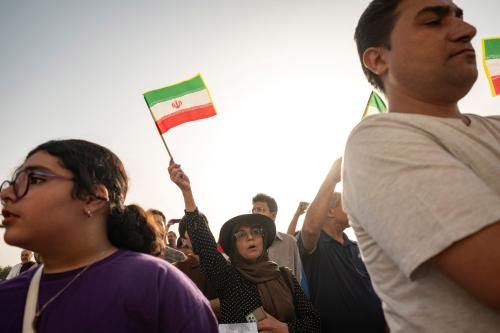This September, when the Senate returns from its summer recess, the Foreign Relations Committee plans to vote on the Moscow Treaty on Strategic Offensive Reductions, which Presidents George W. Bush and Vladimir Putin signed at the Moscow Summit in May. Bush claims the treaty “will liquidate the legacy of the Cold War,” but it does no such thing. Nor was this really his administration’s intention. Rather, the objective, which this treaty now codifies, is to ensure that the United States retains maximum nuclear flexibility—by enabling it to deploy its nuclear forces in any way that it wants. The result is a treaty that makes the world no safer than it was before, and much the worse for failing to achieve a genuine reduction in nuclear weapons.
Complete text of this article on The American Prospect website »
The Brookings Institution is committed to quality, independence, and impact.
We are supported by a diverse array of funders. In line with our values and policies, each Brookings publication represents the sole views of its author(s).



Commentary
One-Day Wonder: The dangerous absurdity of the Bush-Putin arms treaty
August 25, 2002